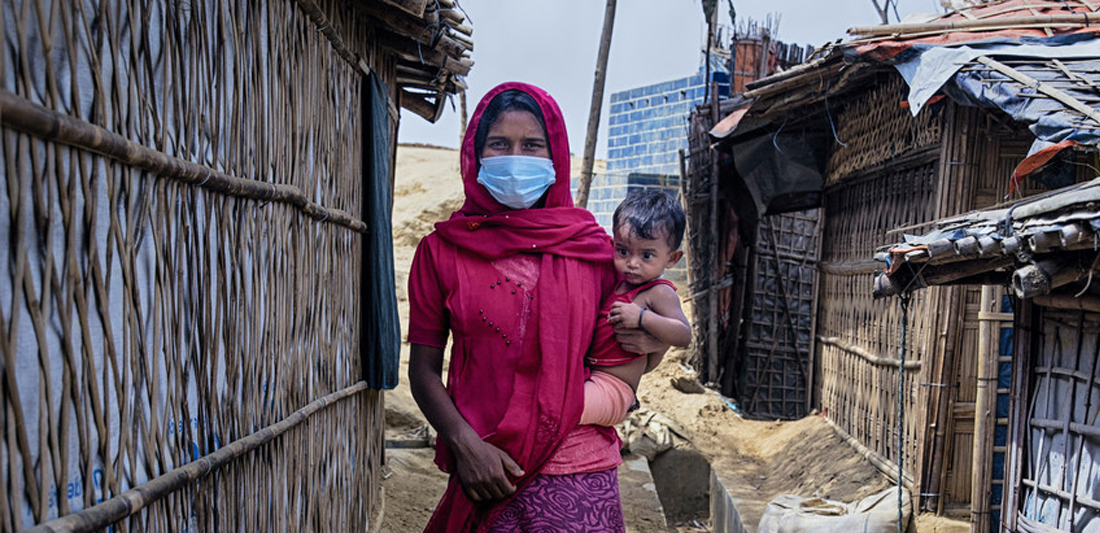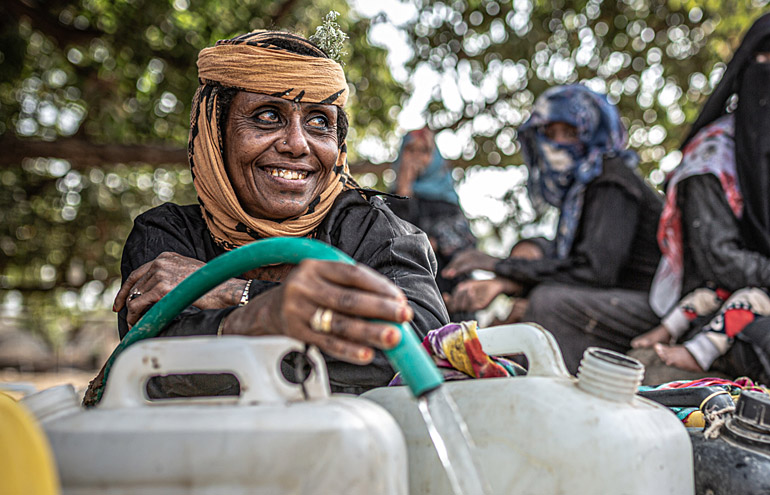
In fragile states, war zones and in poor countries, the human and economic costs of COVID-19 threaten to kill millions and push billions more into poverty.
COVID-19 has now affected every country and almost every person on the planet. It sharply exposes and exploits the extreme inequality that defines our world and will have grave and potentially life-threatening consequences for those already at greatest risk in humanitarian contexts.
The humanitarian system is preparing for a sharp rise in conflict, food insecurity, and poverty as economies contract, and export earnings, remittances and tourism disappear.
The Global Humanitarian Response Plan (GHRP), initially released on 25 March 2020, begins to capture and anticipate the most immediate of those needs, based on the existing revisions or the development of new humanitarian response plans. To enable the most appropriate and adaptive response, the GHRP will be updated on a six-week basis, offering an opportunity for additional priority countries to be included, and to report on changes in the situation and needs, and on progress and challenges of the response and funding received.
Since the initial publication of the GHRP, the COVID-19 pandemic has taken hold at varying scale, speed and severity levels in the 54 countries with ongoing humanitarian crises. The total financial requirements have risen from US$2 billion to $6.71 billion. This significant increase is due to a rapid evolution of humanitarian needs, the inclusion of the additional countries, increased cost of essential health and other supplies, and air and sea transportation.
An unprecedented crisis calls for unprecedented solidarity. Australia must give its fair share.
In response to the May update of the UN COVID-19 GHRP, Oxfam is calling on the Australian Government to contribute its fair share of AUD $165.8million.
Oxfam Australia made this calculation using the best available data at the time of analysis. The fair share methodology examines countries’ ability to provide humanitarian support in light of the scale of funding required for the GHRP. In May it was calculated that Australia’s fair share was 1.6% of the overall UN COVID-19 GHRP, based on all countries’ GNI (current USD), which is a proxy for their wealth and ability to contribute. In determining the fair share figure, Oxfam Australia has used the UN operational rate of exchange, at 1.532, as it is in line with how the UN translates figures from country and regional level response plans into USD for the GHRP. In the spirit of a global response to a global pandemic, the wealthier countries of the world should contribute to the coronavirus response at least proportionately to their wealth.
Oxfam Australia acknowledges that, in addition to being a health crisis, the COVID-19 pandemic is having and will continue to have significant economic impacts on all countries, including Australia. However, with all countries being impacted, it is important that wealthier countries continue to support the most vulnerable.
When the initial COVID-19 GHRP (April–December 2020) was released, Oxfam Australia calculated that Australia’s fair share contribution to the UN COVID-19 GHRP was AUD 84,287,996. In line with the updated May GHRP, this figure was revised to $165.8million. Oxfam Australia revised the methodology at this time to reflect changing contexts. The figure will be updated with the revised GHRP in mid-June.
We know that only ambitious and massive political action by our governments can overcome this crisis. Many governments are acting boldly – but within their borders. It is not enough. Together we must urge our leaders to now show the compassion that is bringing people to care for one another across the globe. We need governments, like Australia’s, to upscale their response to a level we’ve never seen in our lifetimes. And they must not act alone – but together. For all of humanity. We can overcome this pandemic if we act in every country and for every person.
Importantly, donors’ financial assistance in response to the coronavirus must be additional, so as not to divert existing aid budgets from other pressing humanitarian and development needs.
The funds mobilised in response to the crisis should be new and additional. Some donors have started reallocating existing aid budgets to the coronavirus response. This short-sighted approach should be avoided, as it will divert funds away from other vital programs, undoing efforts to fight other deadly diseases or child malnutrition, for example. The UN Population Fund (UNFPA) has warned that if resources were diverted from sexual and reproductive health, for instance, it could fuel a rise in pregnancy complications, maternal deaths and unsafe abortions. During the Ebola crisis in Sierra Leone, there were nearly as many additional maternal and neonatal deaths as deaths from Ebola, due to reductions in life-saving care for pregnant women. This situation must not be repeated.
In addition to advocating for the needs of people, Oxfam is working to prevent the spread of coronavirus and save lives. We are working around the clock to protect the poorest and most vulnerable from coronavirus and its impacts. With our expertise in water, sanitation, and public health promotion, we’re working as part of high-risk communities and mobilising worldwide. From refugee camps in Jordan and Bangladesh to the most vulnerable communities in Italy and Iran, we’re delivering public health programs, meeting acute needs and getting cash assistance to those people who are most in need. It is our priority to support the most vulnerable – including the elderly, people living with disabilities, and other vulnerable children.
That is why we are asking the Australian Government to contribute its fair share, but now more than ever, we are also relying on everyone, supporters new and old..
